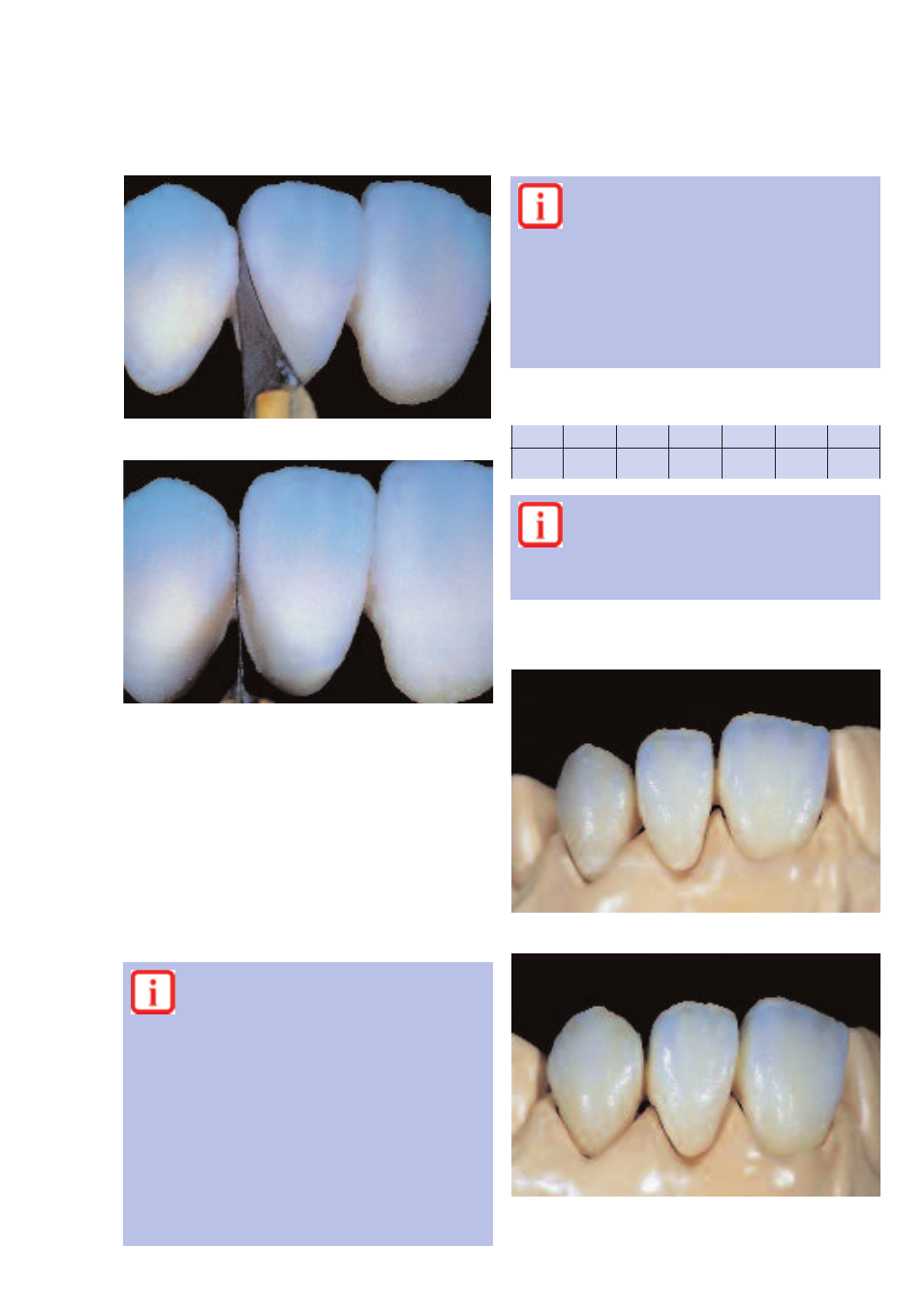Ivoclar Vivadent IPS d.SIGN User Manual
Page 40

40
Firing parameters for the 1
st
dentin and incisal firing
T
870°C
1598°F
B
403°C
757°F
S
4–9 min.
4–9 min.
t
60°C
108°F
H
1 min.
1 min.
V
1
450°C
842°F
V
2
869°C
1596°F
➚
Important
Depending on the size of the object and the build-
up liquid used, the closing time ranges between
4 and 9 minutes. If furnaces of other manufacturers are
used, these parameters have to be adjusted accordingly.
The fired restorations demonstrate a slight gloss.
– Basically, a prolonged pre-drying time is
advantageous: The required period is approx.
10 minutes on the cooling tray. If slow-
evaporating liquids (Build-Up Liquid Premium) are used,
this drying period is very important
– Provide adequate support for bridges on the firing tray.
– Position the firing tray in the furnace only after the head
has completed its opening sequence (once the buzzer has
sounded).
– Make sure that the IPS d.SIGN ceramic materials
do not dry out during layering.
– If necessary, the build-up liquids may be diluted with
distilled water in a 1:1 ratio
– The materials should not be excessively condensed during
layering.
– Blot the completely layered restoration using an
absorbent tissue.
– Do not dry the restoration with a hair dryer, since this will
dry out the surface thus preventing the underlying liquid
from escaping. This may result in delamination of the
ceramic material in the interdental area, particularly in
bridge reconstructions.
are separated in the interdental spaces down to the opaquer using a sharp instrument (e.g. thin scalpel, razor
blade).
Then the restoration is fired using the firing parameters for the 1st dentin and incisal firing.
Once the contact points have been provided, the bridge restorations…..
Condensing the ceramic surface (after contouring) using a
large, dry brush, makes it more homogeneous, which
prevents the ceramic from pulling away from the margin.
Before firing, the entire bridge units must be separated using
a thin blade and cutting through the ceramic down to the
opaquer. Moreover, a visual check must be made to make
sure that all areas are properly covered with ceramic prior to
firing.
